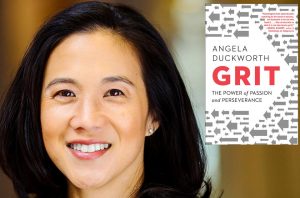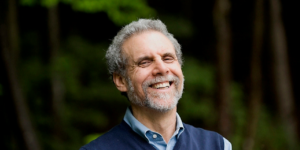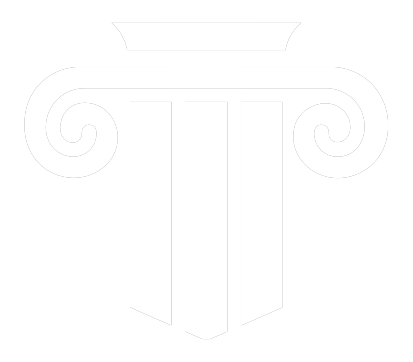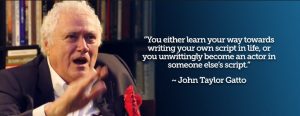The Power of Story – Classic Literature and Education
David McCullough is one of the best storytellers of all time. (60 Minutes – Journey Through History) Jump up to about 30:00 to this lecture to hear about the power of education and the type of education I believe in.
I work in a Classical school. The foundation of the curriculum and the pedagogy is history told through great literature. Why do I think this is one of the best ways to learn about life is capsulated in this clip.
‘This is how the world is….this is how you should behave in it.’ The power of story, the power of literature.
Quotes:
The problem is that our culture has engaged in a Faustian bargain, in which we trade our genius and artistry for apparent stability.

- Published in Uncategorized
Meet Eva Moskowitz, CEO of Success Academy Charter Schools
School Choice
Listen to this discussion by Eva Moskowitz, the CEO, and leader of Success Academy Charter Schools. I knew of the NY charter network and their high results but after listening to Moskowitz’ journey to believe that school choice was the solution to failing schools I have a deeper appreciation for her work. Eva started out as a NY City Councilperson and made it her mission to improve outcomes in public schools. After run-ins with the teacher’s unions, she embarked on building out the Success Academy network. A dozen years later, her system has 40+ schools with thousands of kids receiving a top-notch education. Give the lecture a listen;
- Published in Uncategorized
The Power of Liberal Arts To Prepare Our Kids For Tomorrow
The role of the Liberal Arts in Education.
Epstein and Ferguson explain how a well-rounded education. In this day and age of transition, I believe our education system needs to adapt to focusing on generalist, critical thinkers.
Dear Tech World, STEMism is Hurting Us
In a blistering assault on the value of the liberal arts many months ago, former Sun Microsystem CEO Vinod Khoshla offered anything but nuance in his opening indictment: “Little of the material taught in Liberal Arts programs today is relevant to the future.”
The rest of his article is a tirade against majoring in the liberal arts.
However, Khoshla’s own field, tech, is full of people who’ve devoted their university days to the liberal arts:
- Susan Wojcicki (CEO of YouTube) majored in history
- Reid Hoffman (founder of Linkedin) majored in philosophy
- Stewart Butterfield (CEO of Slack) majored in philosophy
- Alexa Hirschfeld (cofounder of Paperless Post) majored in Classics
- Parker Harris (cofounder of Salesforce) majored in English Literature
- Jack Ma (cofounder of Alibaba) majored in English….
…
Steve Jobs understood the advantage of incorporating fields that focus on pushing the boundaries of human knowledge. His obsession with beautiful fonts stemmed from a course on calligraphy at Reed College. As he once said, “it’s in Apple’s DNA that technology alone is not enough — that it’s technology married with liberal arts, married with the humanities, that yields us the result that makes our hearts sing.”
Our world overflows with talented minds that have achieved entrepreneurial success aided by a value for visual aesthetics and trained in literature, history, and philosophy. This is not news for the business and tech world. Yet whenever STEM evangelists in tech preach the gospel of STEM, they inevitably trash the “soft disciplines.”…
A company comprised of people with HEAT backgrounds will produce diversity of thought — the yeast of innovative thinking. Training in psychology, anthropology, art, literature, history, philosophy, Classics, and journalism are skills that will advance innovative and creative thinking in an organization.
Scott Hartley articulates not just the value of the humanities in the tech world but the vital role the liberal arts will play in its future:
“When we talk about ‘software eating the world,’ there’s a flipside to that. Software is touching every aspect of our lives, which in turn means that we require more diversity of thought, passion, and methodology to apply that tech meaningfully to the biggest problems we face. Code is necessary, but not sufficient. Lost in the drumbeat of STEM is the human context.”
For the person who lives a virtuous life, of steadfastness and good judgment, happiness is always within reach
Seneca wrote a number of tragedies that directly inspired William Shakespeare, but was also one of the main exponents of the Stoic school of philosophy, which has made a surprising comeback in recent years. Stoicism teaches us that the highest good in life is the pursuit of the four cardinal virtues of practical wisdom, temperance, justice and courage – because they are the only things that always do us good and can never be used for ill. It also tells us that the key to a serene life is the realization that some things are under our control and others are not: under our control are our values, our judgments, and the actions we choose to perform. Everything else lies outside of our control, and we should focus our attention and efforts only on the first category.
Yep. Teach, study and learn the above and good things will happen.
- Published in Uncategorized
The Debates We Should Be Having On Education In America
Education and How To Fix America; 1990 Teacher of The Year Acceptance Speech
Check out John Taylor Gato’s speech in 1990 as he was accepting the New York State Teacher of the Year Award. Almost 30 years ago Gato was bringing out the role of parenting and critical thinking in American education. Some of his ideas are a bit much but it shows the power of the public education system forming our country. (Read it all HERE). Some of the excerpts that jumped out at me include:
Our school crisis is a reflection of this greater social crisis. We seem to have lost our identity. Children and old people are penned up and locked away from the business of the world to a degree without precedent – nobody talks to them anymore and without children and old people mixing in daily life a community has no future and no past, only a continuous present. In fact, the name “community” hardly applies to the way we interact with each other. We live in networks, not communities, and everyone I know is lonely because of that. In some strange way school is a major actor in this tragedy just as it is a major actor in the widening guilt among social classes.
The hunger for community is very pronounced in society today. The community used to take place in churches, in neighborhoods and in civic club and events. As our churches emptied and security concerns keep kids indoors and the role of service fades in our busy society we are seeing a rise in anit-depressants, loneliness, and opioid drug abuse. As humans, we evolved to be social and adapt in groups others to survive. One of my favorite books by Jonathan Haidt, Righteous Mind, explains from an evolutionary point of view why we developed morality.
Here is another curiosity to think about. The homeschooling movement has quietly grown to a size where one and a half million young people are being educated entirely by their own parents. Last month the education press reported the amazing news that children schooled at home seem to be five or even ten years ahead of their formally trained peers in their ability to think.
And if you take the references of Televisions and shift them to ‘screen time’ to encompass the games and phones in a child’s life, this quote, again from 30 years ago, starts getting really scary;
Two institutions at present control our children’s lives – television and schooling, in that order. Both of these reduce the real world of wisdom, fortitude, temperance, and justice to a never-ending, non-stopping abstraction. In centuries past the time of a child and adolescent would be occupied in real work, real charity, real adventures, and the realistic search for mentors who might teach what you really wanted to learn. A great deal of time was spent in community pursuits, practicing affection, meeting and studying every level of the community, learning how to make a home, and dozens of other tasks necessary to become a whole man or woman.
But here is the calculus of time the children I teach must deal with:
Out of the 168 hours in each week, my children sleep 56. That leaves them 112 hours a week out of which to fashion a self.
My children watch 55 hours of television a week according to recent reports. That leaves them 57 hours a week in which to grow up.
My children attend school 30 hours a week, use about 6 hours getting ready, going and coming home, and spend an average of 7 hours a week in homework – a total of 45 hours. During that time, they are under constant surveillance, have no private time or private space, and are disciplined if they try to assert individuality in the use of time or space. That leaves 12 hours a week out of which to create a unique consciousness. Of course, my kids eat, and that takes some time – not much, because they’ve lost the tradition of family dining, but if we allot 3 hours a week to evening meals, we arrive at a net amount of private time for each child of 9 hours.
It’s not enough. It’s not enough, is it? The richer the kid, or course, the less television he watches but the rich kid’s time is just as narrowly proscribed by a somewhat broader catalog of commercial entertainments and his inevitable assignment to a series of private lessons in areas seldom of his actual choice.
And these things are oddly enough just a more cosmetic way to create dependent human beings, unable to fill their own hours, unable to initiate lines of meaning to give substance and pleasure to their existence. It’s a national disease, this dependency and aimlessness, and I think schooling and television and lessons – the entire Chautauqua idea – has a lot to do with it.
Think of the things that are killing us as a nation – narcotic drugs, brainless competition, recreational sex, the pornography of violence, gambling, alcohol, and the worst pornography of all – lives devoted to buying things, accumulation as a philosophy – all of them are addictions of dependent personalities, and that is what our brand of schooling must inevitably produce.
And what do we do to correct the problem:
It’s high time we looked backwards to regain an educational philosophy that works. One I like particularly well has been a favorite of the ruling classes of Europe for thousands of years. I use as much of it as I can manage in my own teaching, as much, that is, as I can get away with given the present institution of compulsory schooling. I think it works just as well for poor children as for rich ones.
At the core of this elite system of education is the belief that self-knowledge is the only basis of true knowledge. Everywhere in this system, at every age, you will find arrangements to place the child alone in an unguided setting with a problem to solve. Sometimes the problem is fraught with great risks, such as the problem of galloping a horse or making it jump, but that, of course, is a problem successfully solved by thousands of elite children before the age of ten. Can you imagine anyone who had mastered such a challenge ever lacking confidence in his ability to do anything? Sometimes the problem is the problem of mastering solitude, as Thoreau did at Walden Pond, or Einstein did in the Swiss customs house.
Independent study, community service, adventures in experience, large doses of privacy and solitude, a thousand different apprenticeships, the one day variety or longer – these are all powerful, cheap and effective ways to start a real reform of schooling. But no large-scale reform is ever going to work to repair our damaged children and our damaged society until we force the idea of “school” open – to include family as the main engine of education.
There you have it. Family, experience, time to think, apprenticeship, a study of history…and on and on. All pretty basic and pretty cheap stuff to fix our nation.
For more on the state of education and our countries future, I caught an interview done by AEI with a panel of military retired Generals and Admirals. (Military Readiness and Early Childhood; What’s The Link?)
Gatto has similar beliefs in the future of work and the skills needed for future society as Seth Godin in his book Linchpin. When I read it my ideas of what children need to prepare themselves for the future shifted. It’s not the value of writing a five-paragraph essay or understanding the Pythagorean theorem, instead, the skills needed for tomorrow have to do with critical thinking, values and virtues and a heavy dose of Grit (Angela Duckworth -Grit)
(Ethos3) For years there has been only two teams in the workforce: management and labor. Godin proposes that a third team now exists: the linchpin.
A linchpin does not need a map to follow. A linchpin creates opportunity and vision without a manual.
The linchpin brings humanity, connection and art to work everyday.
Every person has the potential to bring his or her humanity and artistry to work, and become a linchpin.
Godin proposes that part of the human brain, the amygdala, resists anything that seems risky or dangerous, including being bold in business. The amygdala is the reason that there are not more linchpins.
Godin’s list of what makes a linchpin indispensable:
- Providing a unique interface between members of the organization
- Delivering unique creativity
- Managing a situation of great complexity
- Leading customers
- Inspiring staff
- Providing deep domain knowledge
- Possessing a unique talent
- Published in Uncategorized
Schools That Work – Emotional Intelligence
In an effort to identify educational strategies that can help improve American schools following is an interview with Daniel Goleman on his break out bestseller, Emotional Intelligence. I remember reading his book and putting the theories in the book into practice.
In this 35 minute interview, Goleman talks about teaching Emotional Intelligence in schools to which I say; ‘YES!’
LISTEN HERE
 Do you have a good sense of how others see the world? Psychologist, journalist and best-selling author Daniel Goleman discusses his ground-breaking research on emotional intelligence. Daniel explains how we can enhance and manage our emotions to expand our brain capacity. As a pioneer in the emotional and social intelligence movement, Daniel’s research changed the way we look at what it means to be smart. He explains how people can sharpen their emotional intelligence to improve their relationships, work and even the empathy they have for others. Daniel wrote for “The New York Times” for 12 years, specializing in psychology and brain sciences. He has also authored more than 10 books on psychology, education, and leadership, including the 1995 bestseller “Emotional Intelligence,” which has sold more than 5 million copies worldwide.
Do you have a good sense of how others see the world? Psychologist, journalist and best-selling author Daniel Goleman discusses his ground-breaking research on emotional intelligence. Daniel explains how we can enhance and manage our emotions to expand our brain capacity. As a pioneer in the emotional and social intelligence movement, Daniel’s research changed the way we look at what it means to be smart. He explains how people can sharpen their emotional intelligence to improve their relationships, work and even the empathy they have for others. Daniel wrote for “The New York Times” for 12 years, specializing in psychology and brain sciences. He has also authored more than 10 books on psychology, education, and leadership, including the 1995 bestseller “Emotional Intelligence,” which has sold more than 5 million copies worldwide.
- Published in Uncategorized



